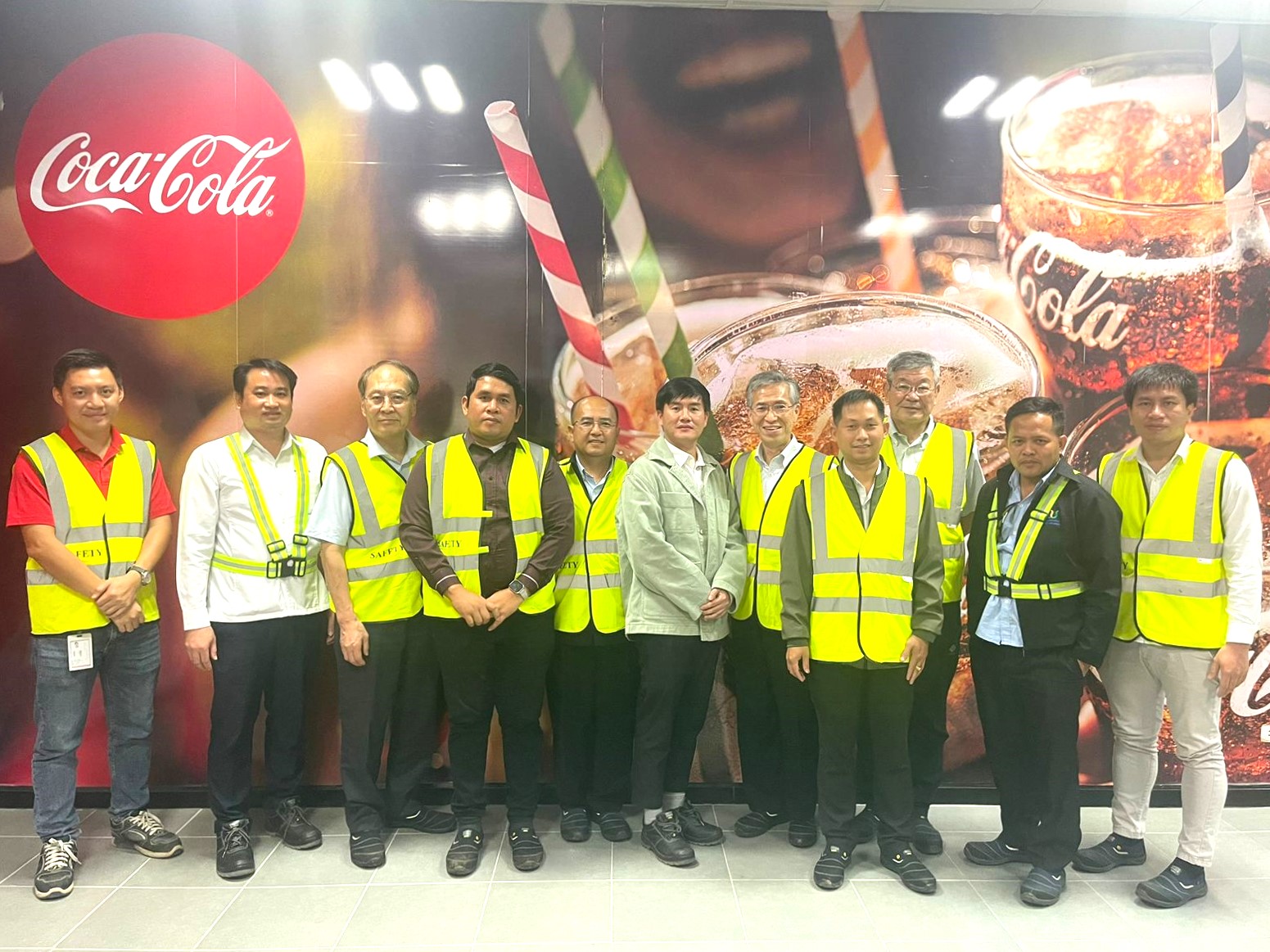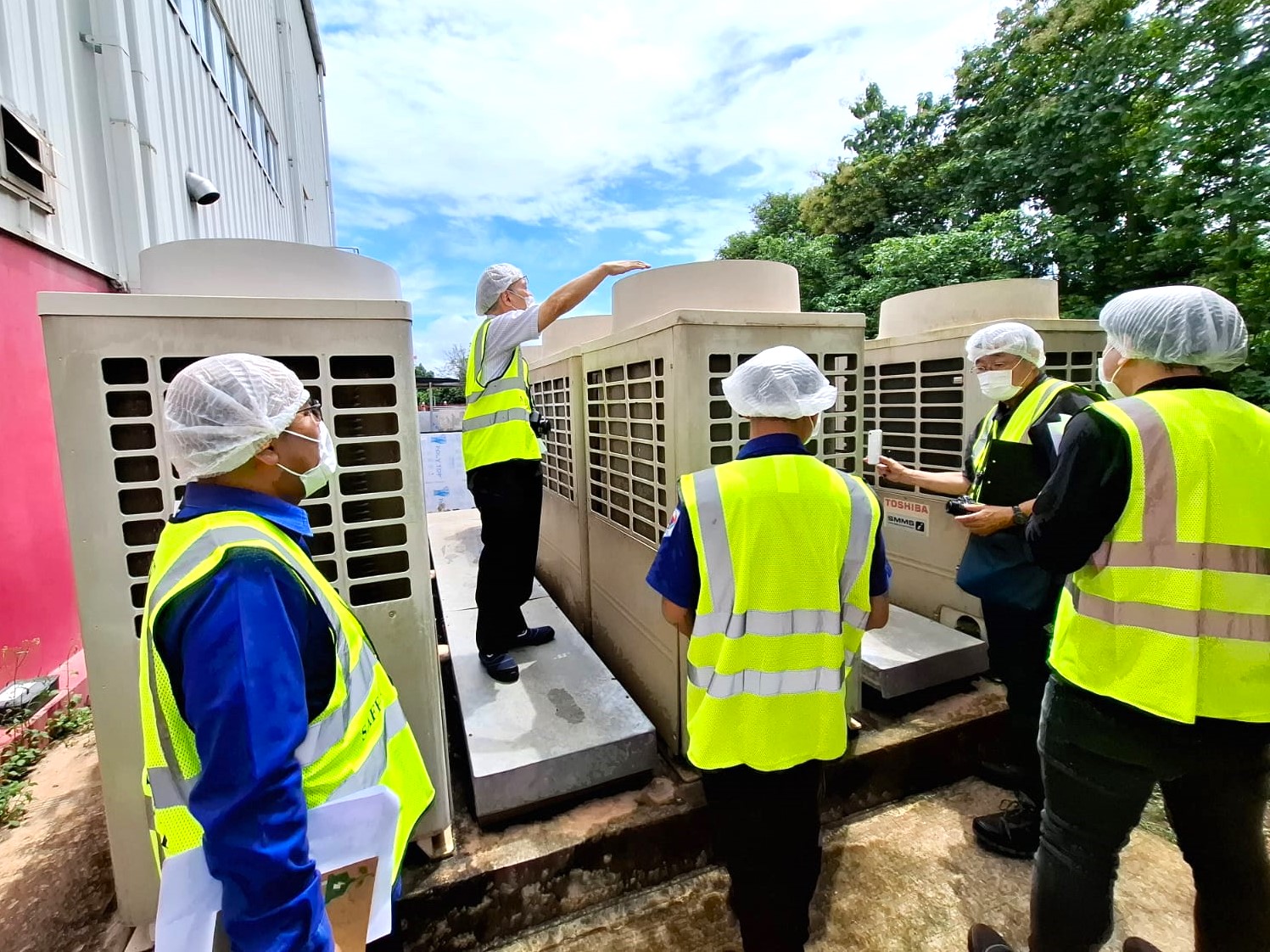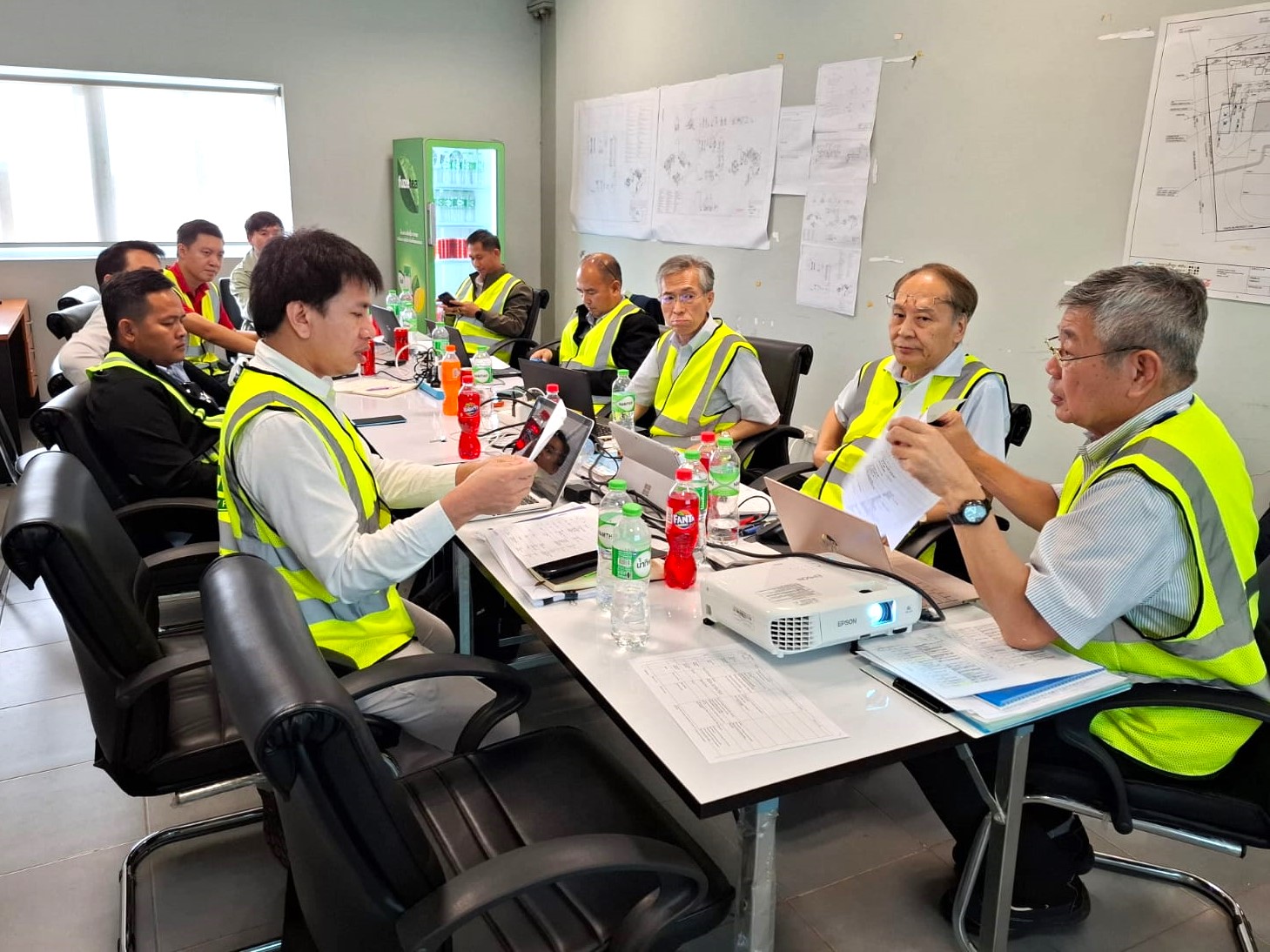Menu

Photo 1. Participants of the AJEEP CN Diagnosis at Lao Coca-Cola Bottling Co.
The ASEAN Centre for Energy (ACE), in collaboration with the Energy Conservation Center Japan (ECCJ), conducted a Carbon Neutrality (CN) diagnosis for industry at Lao Coca-Cola Bottling Co in Vientiane, Lao PDR. Representatives from ACE, ECCJ, Department of Energy Policy and Planning of the Ministry of Energy and Mines (MEM) as the EE&C-SSN focal point for Lao PDR, and Lao Coca-Cola Bottling Co. took part in a CN diagnosis held from 30 September to 2 October 2024.
CN diagnosis at Lao Coca-Cola Bottling Co. was the second in 2024, following similar activities at PT Uni-Charm Indonesia. The CN diagnosis is a capacity-building program as part of the ASEAN-Japan Energy Efficiency Partnership (AJEEP) under Scheme 5, which aims to identify opportunities for decreasing CO2 emissions and energy consumption within factory operations, through process improvement and the adoption of renewable energy sources.
The first day of the visit aimed to conduct a preliminary survey with Lao Coca-Cola Bottling Co. and explain the CN Diagnosis activity, in which the flow of CN diagnosis is carried out through the ISO 50001 energy review process. The first step is a preliminary survey involving data collection and analysis. This is followed by a factory survey, which includes field surveys and measurements of various facilities in the industry. Finally, a report is prepared, including mid- to long-term plans.
The second day of CN Diagnosis focused on conducting a field survey of the three main divisions, namely office, utility, and manufacturing. The energy-saving methods for each division differ. In the office, the aim is to introduce highly efficient equipment and operate in an energy-saving environment. In the utility division, the main purpose is to reduce conversion or supply losses. Meanwhile, for manufacturing, the target is the effective use of waste heat and heat accommodation between processes.

Photo 2. Field Survey to the Utility Division of Lao Coca-Cola Bottling Co.
On the last day, the energy system analysis revealed multiple opportunities for carbon neutrality advancement. The analysis identified key intervention areas across renewable integration, thermal management, and pressure systems – with solar power and thermal systems operating at 90-100°C, LED lighting systems (320Lx × 200), and complex temperature gradients from -6.9°C to 10°C. During the final consultation, ECCJ experts facilitated a strategic discussion on CN countermeasures, where participants proposed comprehensive efficiency improvements. These included structural enhancements such as roof insulation and optimised ceiling design with strategic opening placements, aligned with the existing temperature management systems operating between -5.0°C and 5.0°C.
The discussion particularly emphasised optimising the pressure systems, currently running at various levels (2.7MPa boiler, 0.7MPa to 0.5MPa compressor range), through power factor correction and enhanced cooling water temperature difference monitoring. Special attention was given to the potential of inverter control systems for the Air Handling Unit (AHU), which could complement the existing 31m³ flow rate system, suggesting a holistic approach to energy efficiency improvement.

Photo 3. Participants Discussed the Proposal for CN Countermeasures
Following the three-day CN diagnosis, an online interim meeting is scheduled for February 2025 to share the diagnosis report with other AMS. In August 2025, a start-up meeting will be held to outline a medium-to-long-term strategy for CO2 reduction. The company will then take the necessary steps to achieve its CO2 reduction goals.
AJEEP is a regional cooperation initiative between ASEAN and Japan, under the ASEAN Senior Officials Meeting on Energy and Japan’s Ministry of Economy, Trade, and Industry (SOME-METI) Work Programme 2024-2025. Since 2012, implemented by ACE and ECCJ with financial support from METI, AJEEP has aimed to build capacity and narrow the gap between AMS on EE&C policies and measures. Starting in 2022, AJEEP entered into new Scheme 4 and Scheme 5. AJEEP Scheme 5 focuses on promoting advanced technologies for energy use toward Carbon Neutrality in the industry, building, and transportation through capacity building programmes.
